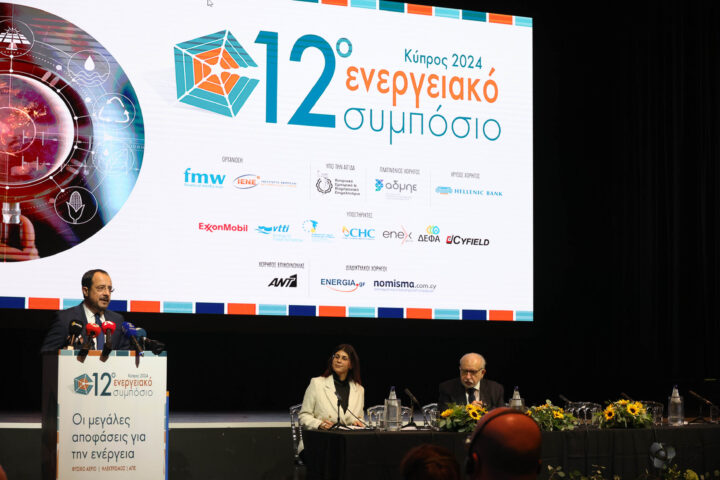While Cyprus is desperate to produce clean energy, one of the island’s biggest and most technologically advanced RES projects has been tangled in government red tape for the past six years.
The construction of a 50 MW solar thermal park in Alassa, Limassol, was on ice for six years with project backers blame the state for not having a mechanism to support RES ventures.
Paphos-based Alfa Mediterranean Enterprises are fuming with the government for not doing their bit so that they can secure €60 mln funding approved by the EU.
To release the funds, the European Parliament needs to receive a letter from the state guaranteeing that money allocated to the project would be used for the project itself.
The Project dubbed ‘CY_CSPc_EOS Green Energy Project in Cyprus’ was proposed in June 2013 for a grant from the NER300 programme, a financing instrument managed jointly by the European Commission, the European Investment Bank (EIB) and member states.
NER 300 offers grants to installations of innovative renewable energy projects.
This project was successful in 2014 and granted the amount of €60.2 mln after completing due diligence procedures of the EC and EIB.
The project was hanging by a string, the promoters argue, as the government was reluctant to send out the letter of guarantee for the financing.
“This meant that the project could not get off the ground for a few years as, without the letter, we could not get the EU grant. This, in turn, made things difficult for us to find funding from other sources,” said Andreas Ioannou, CEO of Alfa Mediterranean Enterprises.
He said the issue was only resolved after the company had presented a bank guarantee for the €60 mln to the state, ensuring the government would not be losing out if the project went belly up.
“The truth is that if it was not for the continuous efforts of the European Union, the project would have been dead in the water a long time ago,” said Ioannou.
He argued that RES projects are having particular difficulties in finding financing without state support as they are dependent on the energy market which is not yet set up.
Investing in the Cyprus electricity market carries a higher risk than in any other country which is why the state needs to step in, said Ioannou.
“As the Cyprus energy market is incomplete, and it is still unknown at what prices producers will be selling electricity, banking institutions, especially Cyprus banks, are extremely reluctant to give out loans to these projects. That is why we need a state support mechanism.”
Cyprus, according to EU directives should have completed its energy market in 2007, but after several postponements, the country does not seem to be anywhere near opening up its energy market.
The Alassa thermal park is ranked first amongst innovative RES projects submitted to the European Commission, but until the recent House decision, it could not get the grant from the EU.
The House of Representatives in February approved the government guarantee to Alfa Mediterranean Enterprises to finance the green energy project.
It is considered an innovative clean energy venture as solar thermal parks can store energy collected from the sun and use it around the clock without having to come off the grid at night.
“The project is planned to be a multi-tower Concentrated Solar Power (CSP) system producing enough electricity to power 65,000 homes in Cyprus for a year”.
The towers will be collecting solar energy using some 300 mirror-like modules, with the towers collecting and storing the energy.
Ioannou said that the company’s future plan is to be able to export electricity to Europe via the EuroAsia Interconnector, which is to connect the grid of Israel to Europe via Cyprus.
State support is a must
Head of Cyprus Federation of Employers and Industrialists (OEB) environmental studies department Anthi Charalambous said that the majority of large RES projects have trouble in finding financing.
“As it is not clear how the market will be set up, and what profit margins will these companies have, or even if they will be viable, Cyprus banks feel that these projects are of high risk,” said Charalambous.
“However, banks should not be looking at these projects as if they involve the construction of another luxury tower. These projects are much more. They are the future of the energy production in Cyprus,” she added.
Charalambous said that it is necessary to understand the financial aspects of the renewable energy sector to make it clear that state support is really needed to achieve climate and energy goals and to achieve long-term benefits that do not lead to uncontrolled profits.
This is another reason why the state should set up a support mechanism, which will not be just there to facilitate the swift issuance of the relative licenses but should also facilitate financing.
“Whether that is through making sure the EU has all the paperwork it needs to go ahead with the project or to ensure that it does its best for these projects to obtain financing.”
The first thing that needs to be done is for the government to push for the completion of the electricity market, argued Charalambous.
Brussels dictates that electricity markets should be operating through competitive platforms, such as energy exchange markets.
“However, at the moment there is no market or the infrastructure to support the creation of a complete market.”
Construction of the project is now ready to launch once the legal services study the agreement between the consortium and the state, allowing the government to issue a guarantee for €60 mln if necessary.
Minister of Agriculture and Environment Costas Kadis said “the effort is to secure benefits for the Republic and the applicant. The government considered the applicant’s stated readiness to commit to the initial terms of the agreement which did not include a state guarantee”.
Kadis said the project, which is to cost €200 mln, will contribute significantly to the local economy and will help Cyprus achieve its national goals at no cost to the Republic or the taxpayer.
He said it will enhance competitiveness within the electricity market, thus offering more options to consumers.









